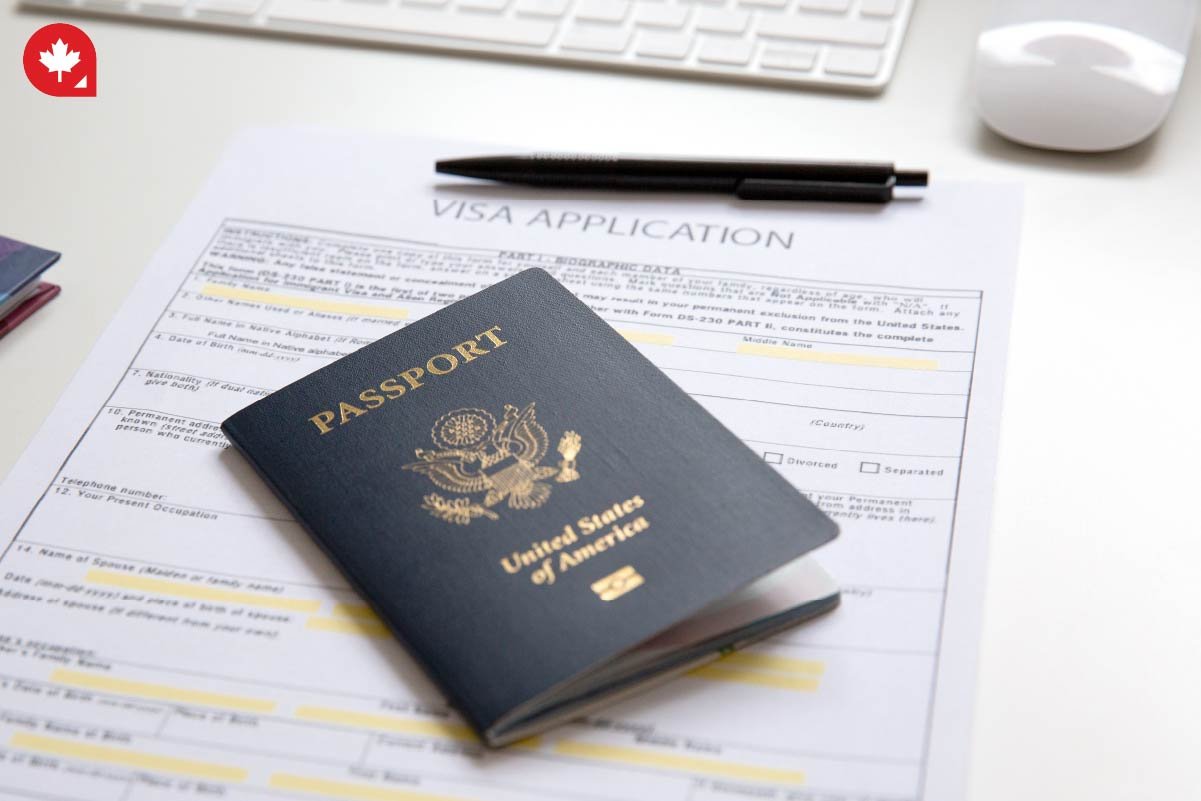When it comes to immigration destinations, Canada dazzles on many fronts - from its integrative immigration system, to its liberal political stance and its inclusive society. It’s no surprise then, that each year sees an increase in the amount of people obtaining Canadian citizenship. If this is what you’d like for yourself, you’ll want to make sure that you’ve covered all the criteria laid out in your Canadian Citizenship Application.
If you are still in the early stages of your Canadian journey, and you are interested in getting PR or are exploring opportunities for yourself and your family, get more guidance here.
Canadian Citizenship

To become a Canadian citizen, you must first obtain Canadian permanent residency. This involves meeting specific criteria, such as having lived in Canada for a certain period, demonstrating language proficiency, and passing a background check.
Once you have Canadian permanent residency, you can apply for citizenship, which grants you the privilege of voting in elections, holding public office, and traveling freely to many countries worldwide. Additionally, you have access to world-class healthcare, education, and social services. Becoming a Canadian citizen offers the opportunity to contribute to a diverse and thriving nation.
Seven Tips to Improve Your Canadian Citizenship Application

Ready to take the leap? Here are our seven tips to improve your Canadian citizenship application.

Tip 1: Stay in Canada For Five Years
To be able to apply for citizenship, you'll have to have lived in the country as a permanent resident for at least three out of five years. This refers to time physically spent living in Canada - not as a tourist. So, make an application only once you have spent over 1,095 days up north.
Additional days living there will also strengthen your application. Be aware that Canadian Immigration can pick up any prolonged time outside the border. Our advice: Keep a travel log to document your total time spent in and out of Canada.
Tip 2: Secure a Job
A valid job can significantly boost your chances of success with your Canadian Citizenship application. It is more than likely to boost your profile and image, as you'll be seen as a viable contributor to the economy who already has ties to the country.
What If I Haven't Found a Job Yet?
If you've yet to secure a job in Canada, fret not! There are several reputable platforms to help you with your job hunting efforts. In addition, you'll be able to receive regular updates on current job postings that match your skill set.
Recommended Platforms to Help Secure Your Job in Canada
- Canada Job Bank
- Glassdoor
- Indeed
- Linked In
- Workopolis
- ZipRecruiter
Tip 3: Maintain a Clean Record
Canada is known not only as a nation with the friendliest people, but also as a country where citizens take the law of the land seriously. It's, therefore, no surprise that the GPI (Global Peace Index) awarded it a spot as one of the world's top 10 most peaceful countries. If you're hoping for a successful outcome with your application, you'll have to ensure that you're a law-abiding citizen across every aspect of your life. But what does that even mean? Well, you'll need to remember that even if you haven't committed a serious crime, like assault or robbery, you could still be denied entry into Canada for offences like unpaid traffic fines or alimony payments, etc.
What Else Will Make Me Ineligible For Canadian Citizenship?
You won't be able to apply if:
- You've got a Canada removal order against you
- You've committed crimes against humanity
- You've committed immigration fraud
- You've misrepresented your immigration case
- You've been identified as a threat to the country's security
- You're being investigated for a crime that's been committed
- You're currently on trial
Biometrics
You will be required to go for biometrics. This will allow the immigration office to scan your profile for any prior criminal convictions or previous immigration infractions with Canada. You'll be asked for a copy of your fingerprints and possibly even court documents to prove that you have no criminal record.
If you're already on the biometrics system, you may not have to worry about this section of your Canadian citizenship application.
Tip 4: Improve Your Language Skills
As you may know by now, Canada has two official languages - English and French. When examining your profile, the immigration office will rate your application based on your ability to communicate in either of these languages.
If you are 18 to 54 years old, your language proficiency will be scrutinized by:
- Looking at the proof you submitted with your application
- Checking your engagement with immigration office officials
- Noting your proficiency during a session with a relevant official
- To succeed with your Canadian citizenship application, you must meet the Canadian Language Benchmarks (CLB) Level four or higher for English or NCLC (Niveaux de Compétence Linguistique Canadiens) for French
Accepted language tests include:
English
- CELPIP: Canadian English Language Proficiency Index Program – CELPIP-General
- IELTS: International English Language Testing System – General Training
French
- TEF Canada: Test d’évaluation de français
- TCF Canada: Test de connaissance du français
Note that if you've studied in Canada at high school or university level, you won't have to take these language exams
Remember to aim for a 6.5 on the Canadian Language Benchmark for most of these categories.
Should you be able to do so adequately, you'll be able to show that you:
- Are able to communicate effectively
- Are able to follow basic instructions
- Can answer questions
- Can ask for and follow directions
- Possess a basic level of grammar and construct simple sentences
- Have a basic vocabulary
Tip 5: File Your Taxes
You can also boost your application by ensuring that you are tax-compliant. It's, therefore, a good idea to submit your tax returns for the relevant tax year, if you've lived in the country for three to five years, before applying for Canadian citizenship.
Remember, the Canadian immigration office will review your tax records to ensure no outstanding tax records are against your profile.
Tip 6: Educate Yourself On The History Of Canada
Part of your journey towards becoming a Canuck involves learning about the country as much as possible. You will be required to take a citizenship test that will gauge your level of knowledge on all things relevant to Canada. It's not solely about the country's history, though. You'll have to demonstrate a thorough understanding of your rights and responsibilities as a Canadian citizen.
The test will be conducted in either French or English and run for half an hour. The test format will be multiple choice with a total of 20 questions. You'll have to score at least 15 correct answers to be considered successful.
Note that you won't have to take a citizenship test if you are younger than 18 or older than 54 years old.
Have a look at what else will be included in your citizen test below:
| Know your Canadian: |
|---|
| History |
| Institutions |
| Symbols |
| Values |
| Citizenship Rights |
Discover the Discover Canada Guide
You'll find all the information you'll need to know about Canada in the Discover Canada Guide. This comprehensive guide provides an opportunity for some test practice sessions with some possible questions. And guess what? There are answers to those questions too. So, after studying, you should be pretty confident and ready to tackle the test head-on.
These could include questions like:
- What is equality in Canada?
- Who founded Canada?
- What documents contain the rights and freedoms of Canada?
- Who are the Inuit?
- Who can vote in Canada?
- Can you question the Canadian police about their services and conduct?
Tip 7: Stay Abreast of the Latest Immigration News
Because the immigration landscape is ever-changing, you'll need to stay up-to-date with this particular newsfeed if you want to remain in the loop regarding things that could affect your immigration to Canada.
Check CanadianVisa.org's news blog regularly for all your Canadian Immigration news updates. We cover everything from immigration programs, to the latest Express Entry draws and updates from Canadian immigration Minister Marc Miller.
Here's how you can stay informed:
- Government Websites: Regularly visit the Immigration, Refugees and Citizenship Canada (IRCC) website for official updates and announcements.
- News Outlets: Follow reputable news sources that cover immigration issues, such as The Globe and Mail, The National Post, and CBC News.
- Social Media: Many immigration professionals and organizations share news and information on social media platforms like Twitter and LinkedIn.
- Immigration Forums: Participate in online forums and communities where immigrants discuss their experiences and share information.
Become a Canadian Citizen

Becoming a Canadian citizen may sound like one of the most daunting undertakings. Luckily CanadianVisa.org works with a number of Regulated Canadian Immigration Consultants (RCICs) who are all experts in this field. Allow them to assist you with your application as soon as you're ready. They'll even submit it for you.
Perks of Citizenship in the Land of the Maple Leaf
- Over 1 million job vacancies
- Universal healthcare
- Free public education up to and including secondary level
- Canadian permanent residency for family
- A society that celebrates diversity
- A safe environment to thrive in
FAQS
What Should I Do if My Citizenship Application is Rejected?
You will be able to apply for Canadian citizenship again. Your new application should include all the relevant paperwork and a new application fee. There is no waiting period before you can reapply, but you must ensure you meet the requirements for Canadian citizenship when doing so.
If your application is unsuccessful, it's also possible to get a judicial review of the outcome via the Federal Court of Canada.
My Citizenship Application Was Returned Because it Was Incomplete. Do I Have to Recalculate My Physical Presence (Time Lived in Canada)?
You'll have to go through the letter accompanying your incomplete application. It will advise you on whether you must recalculate your physical presence. You'd have to recalculate your physical presence if your application was returned because your calculation was incorrect, and you have been asked to re-check your calculation.
I Don't Have Canadian Permanent Residency. How Can I Become a Permanent Resident to Eventually Qualify for Citizenship?
There are many pathways to Canadian permanent resident status. The three easiest ways are the Express Entry System, the Provincial Nominee Program and Family Sponsorship.
If you're a skilled worker, the Express Entry System, via its three programs, will get you to Canada in about six months. The Express Entry Programs are:
Canada's Provincial Nominee Program allows you to live and work in a specific province or territory in Canada if you have a valid offer of employment and the required work experience.
If you have family members who are already in Canada, the Family Sponsorship Program will enable them to sponsor you. Sponsorship can be for dependents, grandparents, family members, spouses or common-law partners.




